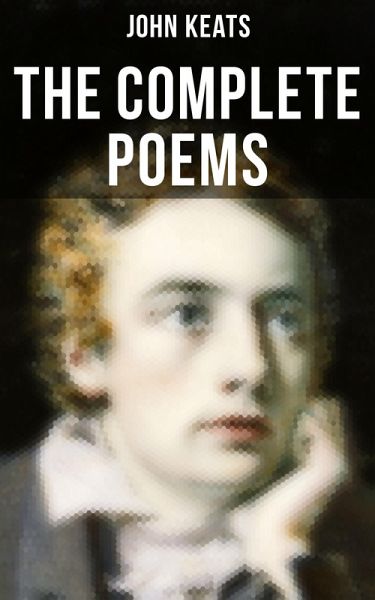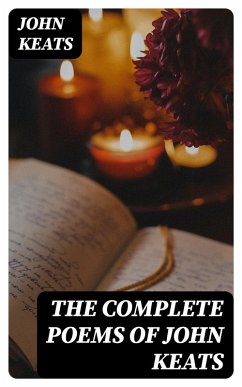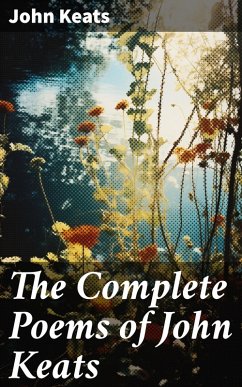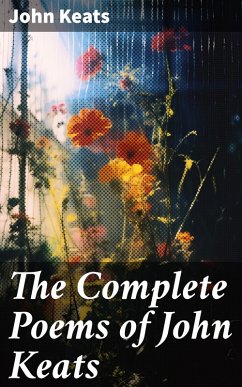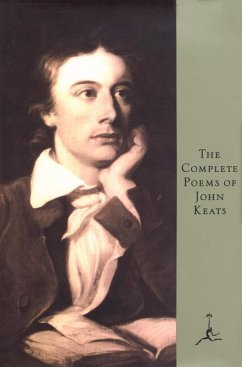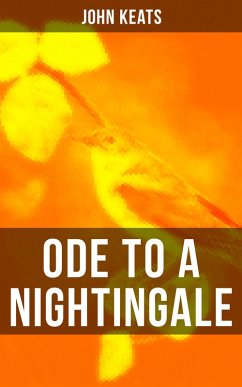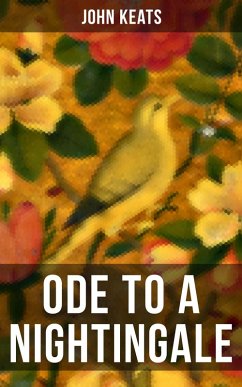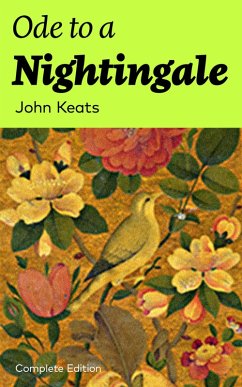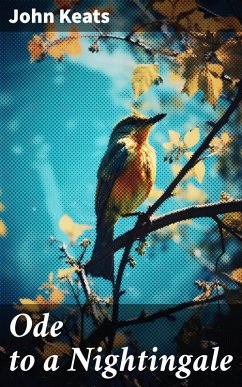John Keats was born in London in living quarters connected with his maternal grandfather's livery stable, the Swan and Hoop Inn, on October 31, 1795. He was the eldest of five children (one of whom died in infancy) begot by Thomas and Frances Jennings Keats. His father was the chief hostler at the Swan and Hoop, and the family prospered. The boy was eight years old when Thomas Keats was killed in a riding accident; the next year, in 1805, Keats's grandfather died. When the future poet was fourteen, his mother (after an unsuccessful remarriage) succumbed to tuberculosis. By then, however, Keats had received a liberal education at the progressive Clarke school, a private academy in the village of Enfield, twelve miles north of London, where for eight years he studied English literature, modern languages, and Latin. (He began translating Virgil's Aeneid while still at shcool.) Charles Cowden Clarke, the headmaster's son, remembered him as an outgoing youth who made friends easily and fought passionately in their defense. A fellow student recalled his pugnacious spirit: 'Keats was not in childhood attached to books. His penchant was for fighting. He would fight any one.' Yet George Keats spoke of his brother's 'nervous, morbid temperament' (perhaps attributable to a complex about being short'poor little Johnny Keats' was barely five feet tall) and of his having 'many a bitter fit of hypochondriasm.' Indeed Keats himself wrote: 'My mind has been the most discontented and restless one that ever was put into a body too small for it.' In 1811 Keats left the Clarke school to become a surgeon's apprenticefirst at Thomas Hammond's apothecary shop in a small town near Enfield and later in London at Guy's Hospital. (Surgery would have been a respectable and reasonable calling for someone of Keats's means: unlike the profession of medicine, it did not require a university degree. Moreover, Keats always maintained he was 'ambitious of doing the world some good.') During his five years of study for a license, the young apprentice completed his translation of the Aeneid and 'devoured rather than read' Ovid's Metamorphoses, Milton's Paradise Lost, and other books he borrowed from the Clarke school. But the work that decisively awakened his love of poetryindeed shocked him suddenly into self-awareness of his own powers of imaginationwas Edmund Spenser's Faerie Queene. At some point in 1814 Keats composed his first poem, 'In Imitation of Spenser.' Although he struck medical colleagues as an 'idle loafing fellow, always writing poetry,' Keats passed the apothecaries' examination that allowed him to practice surgery on July 25, 1816. In the meantime, his poetic genius was being recognized and encouraged by early friends like Charles Cowden Clarke and J. H. Reynolds, and in October 1816 Clarke introduced him to Leigh Hunt, whose Examiner, the leading liberal magazine of the day, had recently published Keats's sonnet 'O Solitude.' Five months later, on March 3, 1817, Poems, his first volume of verse, appeared. Despite the high hopes of the Hunt circle, it was a failure. During the fall of that year, Keats stayed with Oxford student Benjamin Bailey at Magdalen College. While Bailey crammed for exams, Keats worked on Endymion, his four-thousand-line romantic allegory; the two read and discussed Wordsworth, Hazlitt, Milton, Dante, and Shakespeare. Back in London, on November 22, 1817, Keats wrote to Bailey the first of his famous letters to friends (and siblings) on aesthetics, the social role of poetry, and his own sense of poetic mission. Rarely has a poet left such a remarkable record of his thoughts on his own career and its relation to the history of poetry. (The letters also reveal the astonishing speed with which Keats matured as an artist.) Yet by the time Endymion was published in April 1818, Keats's name had been identified with Hunt's 'Cockney School,' and the Tory Blackwood's Magazine delivered a violent attack on Keats as an 'ignorant and unsettled pretender' to culture who had no right to aspire to poetry. Although the critical reaction to Endymion was infamous for its ferocity, the youthful bard was hardly destroyed by itdespite Byron's famous quip that Keats was 'snuffed out by an Article.' The surprising truth is that he entered upon an interval of astonishing productivity, perhaps the most concentrated period of creativity any English poet has ever known. In the summer of 1818, Keats journeyed to Scotland with Charles Brown, the rugged, worldly businessman who was one of his most loyal friends. There he vowed: 'I shall learn poetry here and shall henceforth write more than ever.' That fall he began composing Hyperion, his imitation of and challenge to Milton's Paradise Lost; even critics saw the work as a major achievement. In December, following his brother Tom's death from tuberculosis, Keats went to live with Charles Brown in Wentworth Place, Hampstead. There, almost in spite of himself, the young poet fell helplessly in love with Fanny Brawne, the eighteen-year-old daughter of a widowed neighbor; a year later they were betrothed. In 1819 Keats produced 'The Eve of St. Agnes,' 'La Belle Dame Sans Merci,' the major odes, Lamia, the Dantean dream-vision The Fall of Hyperion, and the five-act verse tragedy Otho the Great (written in collaboration with Brown). On February 3, 1820, Keats suffered a pulmonary hemorrhage that signaled an advanced stage of tuberculosis. He quickly broke off his engagement and began what he called a -posthumous existence.' His career as a poet was effectively ended, although the volume Lamia, Isabella, The Eve of St. Agnes, and Other Poems, containing the bulk of Keats's claim to immortality, was published that July. In a desperate attempt to recover his health in a milder climate, Keats sailed for Italy in September accompanied by the painter Joseph Severn. Declining an invitation to stay with Shelley in Pisa, the two arrived in Rome on November 15 and took up residence in rooms overlooking the Piazza di Spagna. John Keats died in Rome on the night of February 23, 1821, and was buried there on February 26 in the Protestant Cemetery. On his deathbed Keats requested that his tombstone bear no name, only the words 'Here lies one whose name was writ in water.'
